Hey Loves!
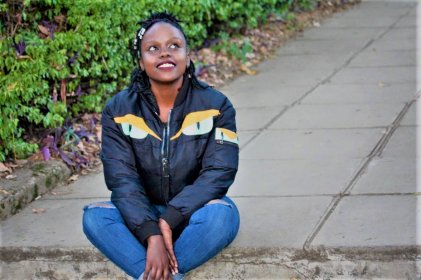
Its been an interesting experience that many people have been hitting my inbox asking me ” You are a lady why rhumba, Why my love for rhumba?” So i decided to write this article, For The Love Of Rhumba telling you guys my story behind My love for rhumba.
Okay, follow me as i take you through this journey and i bet by the end of your read, you will get in love with great and soothing rhumba music.
My love for rhumba started way back through my childhood stage since pappy is a great rhumba fan and so he used to put rhumba playlist day in day out until it flowed into my bloodstream, haha! I can’t figure out how it came through, but i must admit i felt in love with it.
First of all just to introduce some great women into rhumba music in Africa is one great queen of rhumba Faya Tess
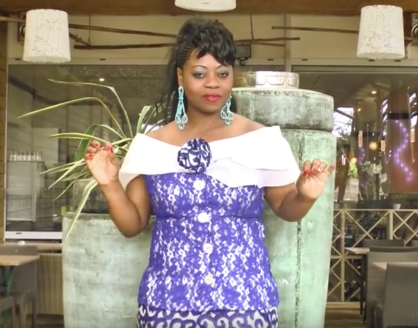
Commonly known as Mbili a bel luckily enough we share the same name Queen of Rhumba ( Malkia Wa Rhumba ), and to give you a taste of her music career and history you will just get amazed of how she is the Empire woman
Mbilia Bel was Africa’s first female trans continental diva. She became the first female musician from Africa who could claim popularity all over the entire continent and beyond. In fact one could argue that there has not been any female musician from Africa who has captured the imagination of music fans across the continent as much as Mbilia Bel did in the eighties. She was born in 1959
With a combination of stunning beauty , an angelic soprano voice, and tremendous agility on stage, Mbilia Bel stole the hearts of music fans all over the continent. Her heavenly voice moved those who listened to her slow jams in tears of joy. Her exceptional dancing skills left audiences roaring with delight, and lit up Tabu Ley’s already famous stage show.
She begun her performing career at the tender age of seventeen singing backup for Abeti Masikini and later with Sam Mangwana. She burst into the music scene when she joined Tabu ley’s Afrisa International in 1981. The duo of Tabu ley and Mbilia Bel was an instant hit. The combination of Tabu Ley’s composing genius and Mbilia Bel’s heavenly voice resulted in Afrisa records literally flying off the shelves.
Her first song with Afrisa released in early 1982 was Mpeve Ya Longo, which means Holy Spirit in Kikongo.It was a moving song about spousal abuse. In the song, Mbilia plays the part of a woman who has been abandoned by her husband and has to raise the children by herself. The song received rave reviews especially among women in Zaire.
Her first album released in 1983 was the extremely popular Eswi yo wapi, which roughly translates to where did it hurt you ?, composed by both Tabu Ley and Mbilia Bel. The song won the award for the best song of 1983 in Zaire, and Mbilia Bel won the award for best new performer. Mbilia Bel was to feature on several other songs that year including Tabu Ley’s Lisanga ya Bambanda and Faux pas and Dino Vangu’s Quelle Mechante. Thanks to Mbilia Bel, the popularity of Afrisa International was soaring. Even songs that did not feature Mbilia Bel were receiving more exposure. The strangelehold that Franco’s TP OK Jazz was holding in the music scene was now being loosened, as Afrisa could now match TP OK Jazz in popularity and record sales, thanks to the arrival of this new sensation who was now being referred to as the African tigress. Here was one singer that Franco could not poach from Afrisa

The duo of Mbilia Bel and Tabu Ley was a match made in musical Heaven
Concerts of Afrisa were now a huge draw.Mbilia Bel was always the main attraction , and when she made an appearance , the crowds often went into a frenzy. Mbilia Bel was a talented stage performer. She often tantalized crowds with her exceptional dancing ability, when she joined the Rocherreautes (dancers) in their dance routine. Tabu Ley who had revolutionized stage show when he introduced the Rocherreauttes in the early eighties, was now the undisputed king of stage show.
By the mid eighties, Mbilia bel had officially married Tabu Ley and was now a refined and mature performer. Her songs continued to dominate the scene. Among them was Mobali na ngai wana , which roughly translates to “this husband of mine”. The song was composed by Tabu Ley and Roger Izeidi, and is an adaptation of a Kikongo traditional song. In the song, Mbilia Bel praises her husband as being handsome and succesful and stresses the fact that even though he has the opportunity to choose from any of Kinshasa’a beautiful women, he chose her. Other songs which blazed the charts during that period include Balle a terre and Bameli soy. Afrisa continued to go from strength to strength.
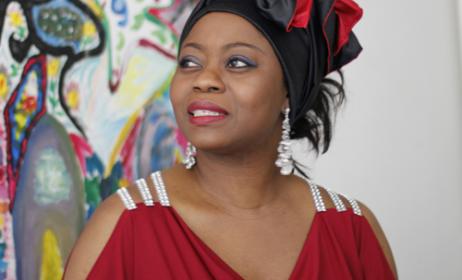
In 1987 Tabu Ley recruited another female artiste to accompany Mbilia Bel. Kishila Ngoyi was here real name , but she was known by her artistic name, Faya Tess. It was against this backdrop that Afrisa embarked on a tour of East Africa that took in Kenya, Tanzania and Rwanda, culminating in the album Nadina, which had Lingala and Kisawahili versions of the song. The tour was well recived by frenzied crowds. Mbilia Bel took centre stage , overshadowing other Afrisa artistes including Ndombe Opetum who had returned from TP OK Jazz. Upon their return to Kinshasa, rumours started surfacing about a rift between Tabu ley and Mbilia Bel. Apparently Mbilia Bel was not too happy about the emergence of Faya Tess, who seemed ready to steal here thunder. Both publicly denied having any problems, but by this time the writing was on the wall.
Mbilia bel quit the band late in 1987 to embark on a solo career. She briefly joined with a Gabonese producer in Libreville, before leaving for Paris where she joined with guitarist Rigo “starr” Bamundele. Her first album with Rigo Starr was entitled Phenomene and was a huge success in Kinshasa as well as abroad. Subsequent releases such as Yalowa, Desole and Exploration have met with limited success.
Following the departure of Mbilia Bel, the popularity of Afrisa International as a band plumetted substantially. Tabu ley himself seemed to loose inspiration for composing as is evidenced by the substantial reduction in the number of albums released. With the exception of her debut album, Phenomene, Mbilia Bel’s career also took on a downward spiral when she left Afrisa.
another great woman is
Mpongo Love
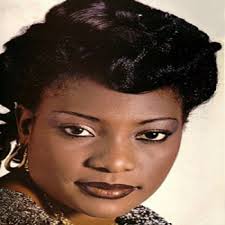 who is famously known by her hit song ” Ndaya ” which she composed and as i quote ” I sing about women’s problems, i try to give them courage… and i will stop singing when the relations between men and women in Africa become problem free, but what African man doesn’t have a mistress? In addition to a hand life, women have a feminist duty to see they fight, that they defend themselves, that they hold their heads high, that they take independent women as example…. know how to say are, We african women, without all the mode we need to”.
who is famously known by her hit song ” Ndaya ” which she composed and as i quote ” I sing about women’s problems, i try to give them courage… and i will stop singing when the relations between men and women in Africa become problem free, but what African man doesn’t have a mistress? In addition to a hand life, women have a feminist duty to see they fight, that they defend themselves, that they hold their heads high, that they take independent women as example…. know how to say are, We african women, without all the mode we need to”.
Just to get Mpongo Love Music Career And History, Enjoy!!!!
In December 1975 when she was 19 years of age, M’Pongo met saxophonist Empompo Loway, who resolved to help her develop a singing career and persuaded her to leave her secretary job. After an initial failure to secure M’Pongo patronage, the two met band manager Ngwango Isionoma, who agreed to supply them with money to start her career.
Loway assisted her in forming a band, Tcheke Tcheke Love, and composed her first songs. M’Pongo debuted with the song “Pas possible Maty” and soon thereafter delivered her first concert at the Ciné Palladium in Kinshasa. Throughout 1977 she performed with an additional backing group, Les Ya tupa’s (with members such as Ray Lema, Félix Manuaku Waku, and Alfred Nzimbi), singing compositions by Mayaula Mayoni, Simaro Lutumba, and Souzy Kaseya. Her rendition of Mayaula’s “Ndaya” became a hit success in Kinshasa, especially among local women.
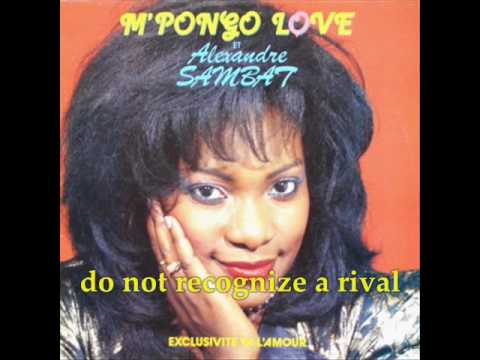
M’Pongo soon began composing and arranging her own music. In 1980 she ended her professional relationship with Empompo to work independently,subsequently moving to Paris. She later produced music under her own label, “Love’s Music”.Later in life she contracted cerebral meningitis in Gabon. She was at her home in Binza, Kinshasa, planning to make a career comeback when her condition worsened and in December 1989 she was admitted to a local clinic. Her older brother told the media that she had suffered a “strong attack”, not specifying her illness. She died on 15 January 1990 and was survived by three daughters.
M’Pongo sang in a clear, slightly nasal voice and utilized precise intonations. During her performances she braced herself on the sides of the stage to compensate for her physical disability.Compared to her contemporaries, M’Pongo was the most feminist of all women soukous singers and actively criticized polygamy and the practice of keeping mistresses in her music.
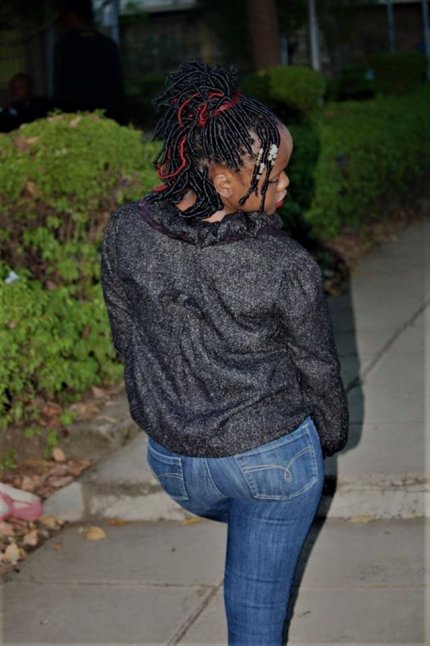
I chose to express this feeling in ” Ndaya ” by the songstress Mpongo Love since it speaks a lot to my life. Once in my life i think i experienced some differences in my relationship with my main ha ha. Not forgetting the intruders, ” My Rivals ” so this expressed my feelings and had to pass a great message to my rivals that i am a tick stuck tight to a cow’s skin to my main’s tail and we are in to end * Winks *
Hey my list still gets longer to my great rhumba women. I love the fact that this beautiful Kenya’s songstress Nadia Mukami
her love for rhumba music is epic, damn! She composes some great love song, but how she expresses her love for rhumba melts my heart.
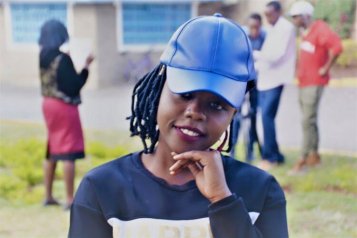
Just moving at a greater height i introduce to you top 10 Congolese Musicians in Africa You need to know that kills the world’s airwaves with good music.
*Don’t go any further, stay right here
Papa Wemba
Papa Wemba is such an important figure in Congolese music that it is nearly impossible to compete with him. Regardless of the popular hits and artists of the moment, the first name that comes to mind when thinking about Congolese music and rumba is Papa Wemba. With songs such as “Analengo,” Papa Wemba is not only one of the most popular artists in Africa, but also a prominent figure in world music.

Le Grand Kallé
Le Grand Kallé was the singer, band leader and songwriter of the most popular song ever performed on African soil: the Congolese independence song called Indépendance Cha Cha. Being a prominent character in the Belgian Congo, he became a member of the Congolese delegation at the “Round Table Talks” regarding independence in 1960. He then composed several politically-themed songs, which became very famous. Le Grand Kallé is also considered to be the father of modern-day Congolese music, since, in 1953, he started one of the earliest and most important Congolese rumba bands: L’African Jazz.
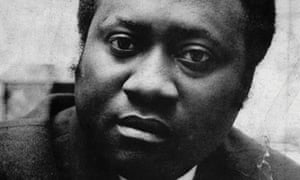
Franco
Franco Luambo Makiadi will forever remain in the collective memory of the Congolese as the undisputed “King of Rumba.” Most commonly referred to as Franco, he was nicknamed the “Sorcerer of the Guitar,” as he mastered the skills of playing fluidly with seemingly little effort. During a span of 40 years in the music industry, Franco produced over 100 albums and approximately 1,000 songs to his name. His music blended Cuban rumba with local Congolese rhythms, attracting both the young and the elderly. His influence can be heard in local music today, and remains popular in nightclubs.
Lokua Kanza
Born in Bukavu in the eastern part of the DRC to a Congolese father and a Rwandan mother, Lokua Kanza is a singer and songwriter best known for his ballads. His style is more mainstream compared to the others on this list, as he takes a more modern traditional approach to Congolese music. “Wapi Yo” might be his most popular song, but his entire repertoire is full of great material for easy listening. In Europe, Kanza is well known within the acoustic music scene.

Fally Ipupa
Fally Ipupa is currently the most popular artist in the DR Congo; he is the nation’s pride. He first became popular through Quartier Latin, a group of singers that would accompany Koffi Olomide in singing and dancing, before Olomide started featuring Ipupa alone. Desiring to separate himself from his mentor, Ipupa decided to launch his solo career, mixing the local soukous ndombolo with R&B beats. Ipupa is also known through his self-proclaimed, and quite elaborate, nicknames such as “Di Caprio,” “Anelka,” and “El Maravilloso.” No Congolese party would be complete without Ipupa songs such as “droit chemin, ko ko ko ko” and “kidiamfuka” playing at least once.

Zaiko Langa Langa
Founded in 1969, Zaiko Langa Langa is a seminal Congolese soukous band which remained popular through several decades, surviving until the 2000s. The word Zaiko is a shortened version of the lingala sentence “Zaire ya bankoko,” which translates as “Zaire of our ancestors,” Zaire referring to the river now known as the Congo; “Langa Langa” translates as “marvelous.” Known for having a hippie and rebel attitude, the band became a symbol of the post-independence generation. Their large appeal to the youth of the DR Congo has led to numerous comparisons between them and the Rolling Stones. Over the years, a number of important soukous artists have joined the band, including Papa Wemba. In 2000, the Congolese Media Association recognized the band as the “best Congolese music group of the 20th century.”
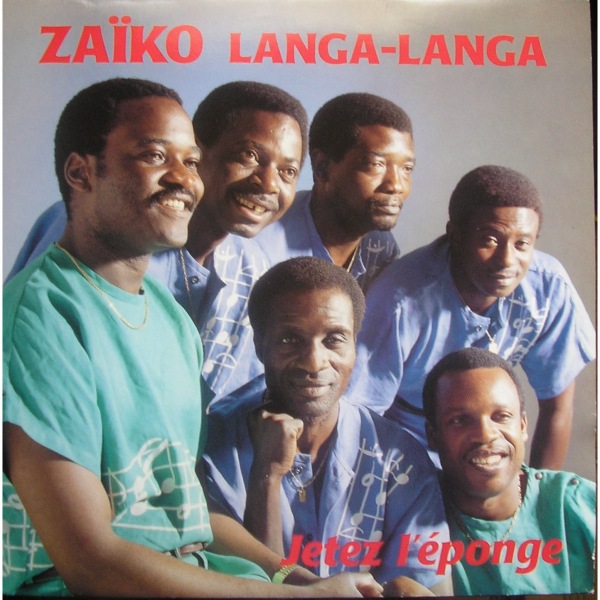
Werrason
As famous across the country as Koffi Olomide, Werrason is Olomide’s biggest competitor. They both have a vast ndombolo music repertoire, are amazing dancers with a similar style, share a well-known pride and arrogance, and have a very large fan base nationwide. However, Werrason is less famous abroad. Contrary to Olomide who adds some poetry into his music, Werrason is a master of the ndombolo (soukous) in its purest form. In his early teenage years, Werrason won a martial arts contest and was nicknamed “Tarzan, le Roi de la Forêt.” This later shortened to “Roi de la Forêt,” meaning the king of the forest, as he is known today.
Seigneur Tabu ley Rochereau
During his lifetime, Seigneur Tabu Ley Rochereau was a prominent Congolese rumba singer, a prolific songwriter, one of the continent’s most important vocalists, and a politician. He is also the father of the French rapper Youssoupha and 67 other children. Over the years, Rochereau produced 250 music albums and composed around 3,000 songs. He was also known as the bandleader of Orchestre Afrisa International. A pioneer in soukous music along with his guitarist Dr Nico Kasanda, Rochereau also drew on international elements, such as Caribbean, Cuban, and Latin American rumba, which he fused with Congolese folk music. He has been described as the “African Elvis.”
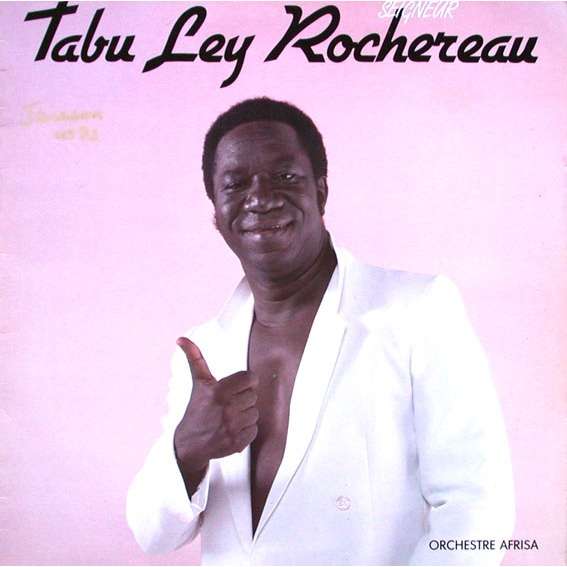
Ferre Gola
Ferre Gola is a Kinshasa born singer, songwriter, and dancer. Since an early age, Gola always dreamed of becoming a musician; a dream that would turn reality in 1995 when Werrason witnessed him singing at a fair organized at Bandalungwa in Kinshasa. Werrason recruited him to join the band Wenge Musica 4×4 BCBG. Since then, Gola has been part of several groups, including Quartier Latin, before starting his solo career in late 2006. His first solo album, Sens interdit, had a huge success in Kinshasa, as well as in France, the Netherlands, and Belgium, where everyone rushed to buy the album. In 2014, his song “Pakadjuma” took the fifth position in Trace Africa’s Top 10 chart, and “Chichiwash” took the third in the Top 30 chart, both becoming international hits.




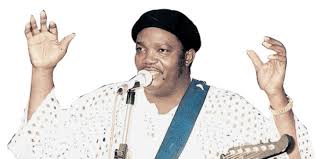





i am not a luo but my love for Rhumba is incredibly unique…however this is an intresting piece of write up
LikeLiked by 1 person
Much appreciated thanks
LikeLike